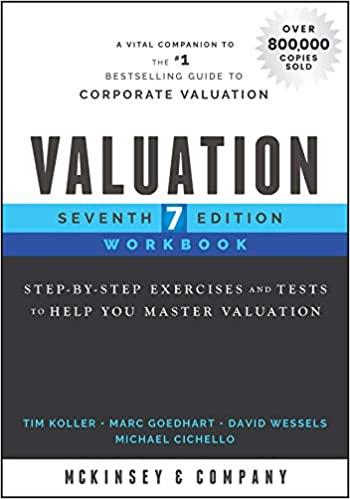Question
4.) Wood Warehousing has property insurance on a replacement cost basis with a $5,000 per occurrence deductible. It can install automatic sprinklers in its warehouse
4.) Wood Warehousing has property insurance on a replacement cost basis with a $5,000 per occurrence deductible. It can install automatic sprinklers in its warehouse for an initial cost of $10,000. The sprinklers will last five years (they would last much longer in real life). Annual upkeep of the sprinklers will be $1,000, payable at the end of each of the first four years from the time of installation. If Wood installs the sprinklers, it will deduct one-fifth of the installation price at the end of each year for five years as depreciation (a noncash expense) for tax purposes. Without the sprinklers, the firm believes that its expected cash outflow for losses less than the deductible will be $1,000 per year and that its insurance premium will be $10,000 per year. With the Sprinklers, it believes that its expected cash outflow for losses less than the deductible will be $500 per year and that its insurance premium will be $7,000 per year. Woods opportunity cost of capital for this decision is 10 percent. Retained losses are paid and deductible for tax purposes at the end of each year. Insurance premiums are paid at the beginning of the year and are deductible for tax purposes when paid. The tax rate is 34 percent. Should Wood install the sprinklers? Support your answer by calculating the net present value of installing the sprinkles.
Step by Step Solution
There are 3 Steps involved in it
Step: 1

Get Instant Access to Expert-Tailored Solutions
See step-by-step solutions with expert insights and AI powered tools for academic success
Step: 2

Step: 3

Ace Your Homework with AI
Get the answers you need in no time with our AI-driven, step-by-step assistance
Get Started


